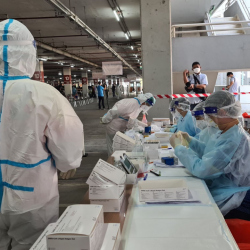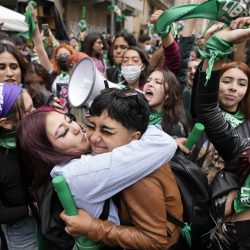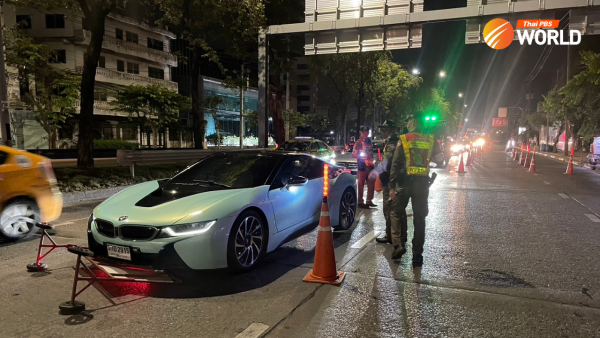Putin orders Russian troops to Ukraine after recognising breakaway regions
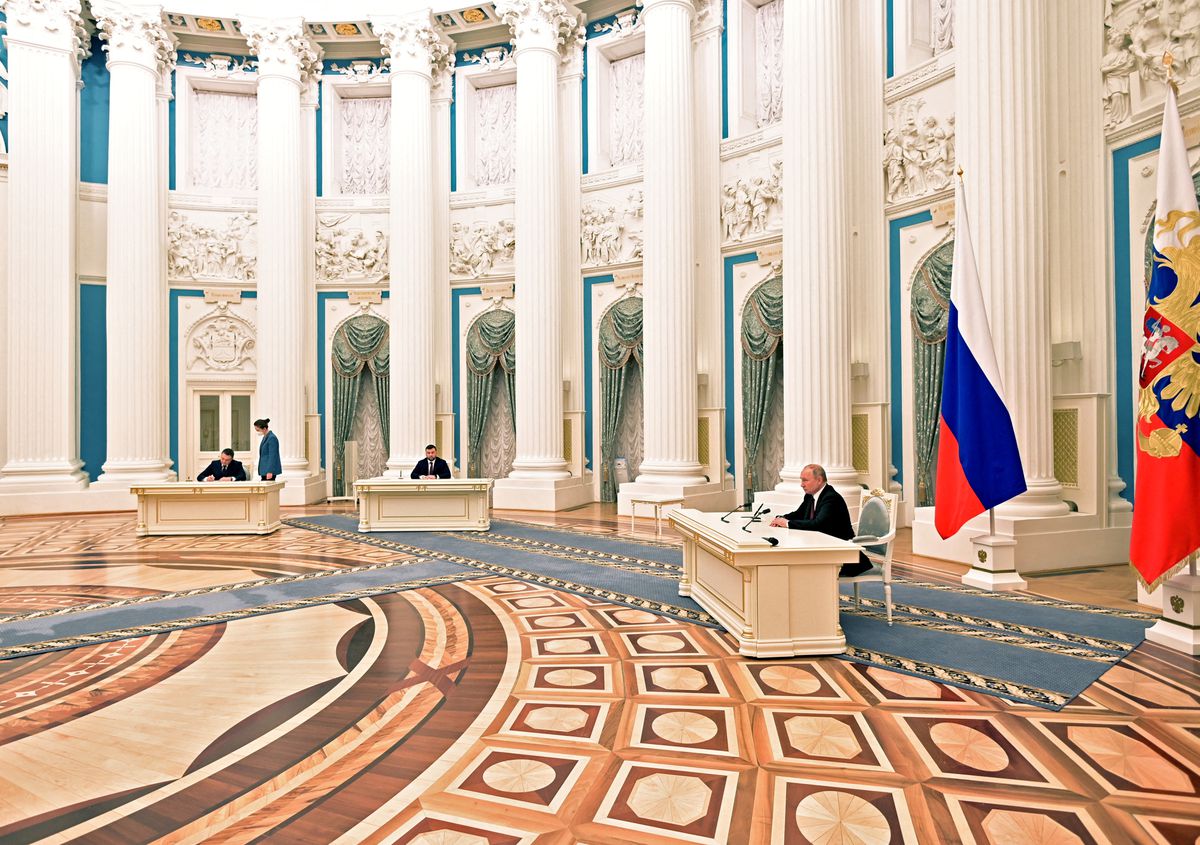
MOSCOW, Feb 21 (Reuters) – Russian President Vladimir Putin ordered the deployment of troops to two breakaway regions in eastern Ukraine after recognising them as independent on Monday, accelerating a crisis the West fears could unleash a major war.
A Reuters witness saw unusually large columns of military hardware moving through the breakaway city of Donetsk after Putin told Russia’s defence ministry to send forces into the two regions to “keep the peace” in a decree issued shortly after announcing recognition for Russian-backed separatists there.
The moves drew U.S. and European condemnation and vows of new sanctions although it was not immediately clear whether the Russian military action would be regarded by the West as the start of a fullscale invasion. The area was already controlled by Russian-backed separatists and Moscow in practice.
There was no word on the size of the force Putin was dispatching, but the decree said Russia now had the right to build military bases in the breakaway regions and that the troops’ mission would a peacekeeping operation.
In a lengthy televised address packed with grievances against the West, Putin, looking visibly angry, described Ukraine as an integral part of Russia’s history and said eastern Ukraine was ancient Russian lands and that he was confident the Russian people would support his decision.
Russian state television showed Putin, joined by Russia-backed separatist leaders, signing a decree recognising the independence of the two Ukrainian breakaway regions — the self-proclaimed Donetsk People’s Republic and the Lugansk People’s Republic – along with agreements on cooperation and friendship.
Defying Western warnings against such a move, Putin had announced his decision in phone calls to the leaders of Germany and France earlier, both of whom voiced disappointment, the Kremlin said.
Moscow’s action may well torpedo a last-minute bid for a summit with U.S. President Joe Biden to prevent Russia from invading Ukraine. The rouble extended its losses as Putin spoke, at one point sliding beyond 80 per dollar.
Biden responded by signing an executive order for a halt to all U.S. economic activity in the breakaway regions and a ban on import of all goods from those areas as well as investment there.
White House spokesperson Jen Psaki said the measures being rolled out in response to Putin’s decree were separate from sanctions the United States and its allies have been readying if Russia invades Ukraine.
U.S. Secretary of State Antony Blinken said the executive order “is designed to prevent Russia from profiting off of this blatant violation of international law.”
The U.N. Security Council will meet publicly on Ukraine at 9 p.m. EST Monday (0200 GMT on Tuesday), a Russian diplomat said, following a request by the United States, Britain and France.
Dutch Prime Minister Mark Rutte said European Union countries have agreed to impose a limited set of sanctions “targeting those who are responsible” for Russia’s recognition of the rebel regions, and British Foreign Minister Liz Truss said the government would announce new sanctions on Tuesday.
NATO Secretary-General Jens Stoltenberg accused Russia of “trying to stage a pretext” for a further invasion. Russia annexed Crimea from Ukraine in 2014.
In his address, Putin delved into history as far back as the Ottoman empire and as recent as the tensions over NATO’s eastward expansion. His demands that Ukraine drop its long-term goal of joining the Atlantic military alliance have been repeatedly rebuffed by Kyiv and NATO states.
With his decision to recognise the breakaway regions, Putin brushed off Western warnings.
“I deem it necessary to make a decision that should have been made a long time ago – to immediately recognise the independence and sovereignty of the Donetsk People’s Republic and the Lugansk People’s Republic,” Putin said.
He said earlier that “if Ukraine was to join NATO it would serve as a direct threat to the security of Russia.”
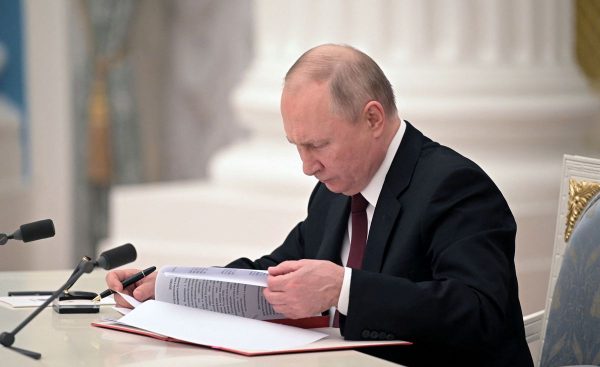
SANCTIONS THREAT
Putin has for years worked to restore Russia’s influence over nations that emerged after the collapse of the Soviet Union, with Ukraine holding an important place in his ambitions.
Russia denies any plan to attack its neighbour, but it has threatened unspecified “military-technical” action unless it receives sweeping security guarantees, including a promise that Ukraine will never join NATO.
But recognition of the separatist-held areas paved the way for Putin to send military forces there, arguing that he was intervening as an ally to protect the separtists against Ukrainian forces.
Putin’s move will narrow the diplomatic options to avoid war, since it is an explicit rejection of a seven-year-old ceasefire mediated by France and Germany, touted as the framework for future negotiations on the wider crisis.
Separately, Moscow said Ukrainian military saboteurs had tried to enter Russian territory in armed vehicles leading to five deaths, an accusation dismissed as “fake news” by Kyiv.
Both developments fit a pattern repeatedly predicted by Western governments, who accuse Russia of preparing to fabricate a pretext to invade by blaming Kyiv for attacks and relying on pleas for help from separatist proxies.
Moscow has said repeatedly it has no such plans.
Biden reaffirmed support for Ukraine’s sovereignty in a call with President Volodymyr Zelenskiy and also spoke to French President Emmanuel Macron and Germany Chancellor Olaf Scholz.
Hours earlier, Macron gave hope of a diplomatic solution, saying Putin and Biden had agreed in principle to meet.
But the Kremlin said there were no specific plans for a summit. The White House said Biden had accepted the meeting “in principle” but only “if an invasion hasn’t happened”.
Washington says Russia has massed a force numbering 169,000-190,000 troops in the region, including the separatists in the breakaway regions, and could invade within days.
European financial markets tumbled at the signs of increased confrontation, after having briefly edged higher on the glimmer of hope that a summit might offer a path out of Europe’s biggest military crisis in decades. The price of oil – Russia’s main export – rose, while Russian shares and the rouble plunged.

